Welcome to the Queen’s College undergraduate admissions page. We would be delighted if you were to choose to apply to us if you want to study at Oxford. Queen’s is a friendly and inviting college with a rich cultural mix and somewhere that can open a new world of opportunities to students. As well as a strong emphasis on high quality education the college community offers opportunities to students in a wide variety of areas such as music, sport, theatre and other social events. We also offer a range of scholarships, grants and awards to our students to help financially with their studies. Full details of all this can be found on our webpage, so please feel free to explore our undergraduate admissions pages to learn more about what makes Queen’s special. Information on specific subjects can be found here.
Please download our brochure that gives more information about what it’s like to study and live here.
UCAS Campus Code: J
The application process
The initial stages of the application process are the same at Queen’s as they are at any other college in the University. UCAS applications are due by 6pm (UK time) on 15 October 2025 for 2026 entry. Applicants need to ensure that they have registered for and booked any necessary admissions tests. The deadline to register for Oxford’s own admissions tests is 19 September 2025 (except for the LNAT and the UCAT); the deadline to book Oxford’s own admissions tests is 26 September 2025. The most comprehensive information about applying to the University is available on the central University admissions webpages.
Interviews will take place online in December 2025.
If you are a current applicant and would like step-by-step support with each stage of our admissions process, we recommend that you sign-up for the University’s Choosing Oxford newsletter.
The College supports the University’s policy about the age of candidates for undergraduate admissions, which states:
‘Oxford University welcomes applications from students regardless of their age. However, potential candidates for all courses will be expected to demonstrate a mature approach to the study of their subject, including skills of critical analysis, wide contextual knowledge and the ability to manage their own time effectively. If, for welfare reasons, relating to age or other grounds, a College considers that it is not in the best interests of an individual student to live in College, they will discuss alternative options, if an offer of a place is made.’
The College is happy to consider applications from students regardless of their age. Recognizing that thriving on an undergraduate course requires both intellectual and personal maturity, the College may decide to offer a place for academic reasons, while deferring the entry year until a later date when the College is fully confident in the candidate’s ability to meet the challenges of university study.
For Medicine, the College follows the University policy, i.e. ‘Students must be 18 years of age at the time they start the Medicine course. The clinical contact in our programme starts in the first term and means that younger students would not be able to take part in required elements of the course. For Medicine, your application will not be shortlisted unless you will be at least 18 years old on the 1 November of your first term.’ This requirement brings the Medical School into line with many other top-ranking Medical Schools in the UK and is further explained in the FAQs on the Medical Sciences website.
Finding out your result
We will send out admissions decisions for 2026 entry in January 2026, at the same time as the other colleges. Unfortunately, we are not able to give out application results before this date.
Remember…
Our tutors are looking for academic enthusiasm, capability, and potential. You will be expected to think on your feet; take the interview questions at face-value, ask for help if you need it, speak through your thought process out loud, be honest, and make the most of being given the chance to speak to experts in your subject!
Tutors are not trying to trick you or make you feel uncomfortable; they actually want to help you do your best.
Contact us
Finally, if you have any questions about the admissions process or applying to Queen’s, please get in touch with us:
Email: admissions@queens.ox.ac.uk / Tel: 01865 279161
Queen’s now
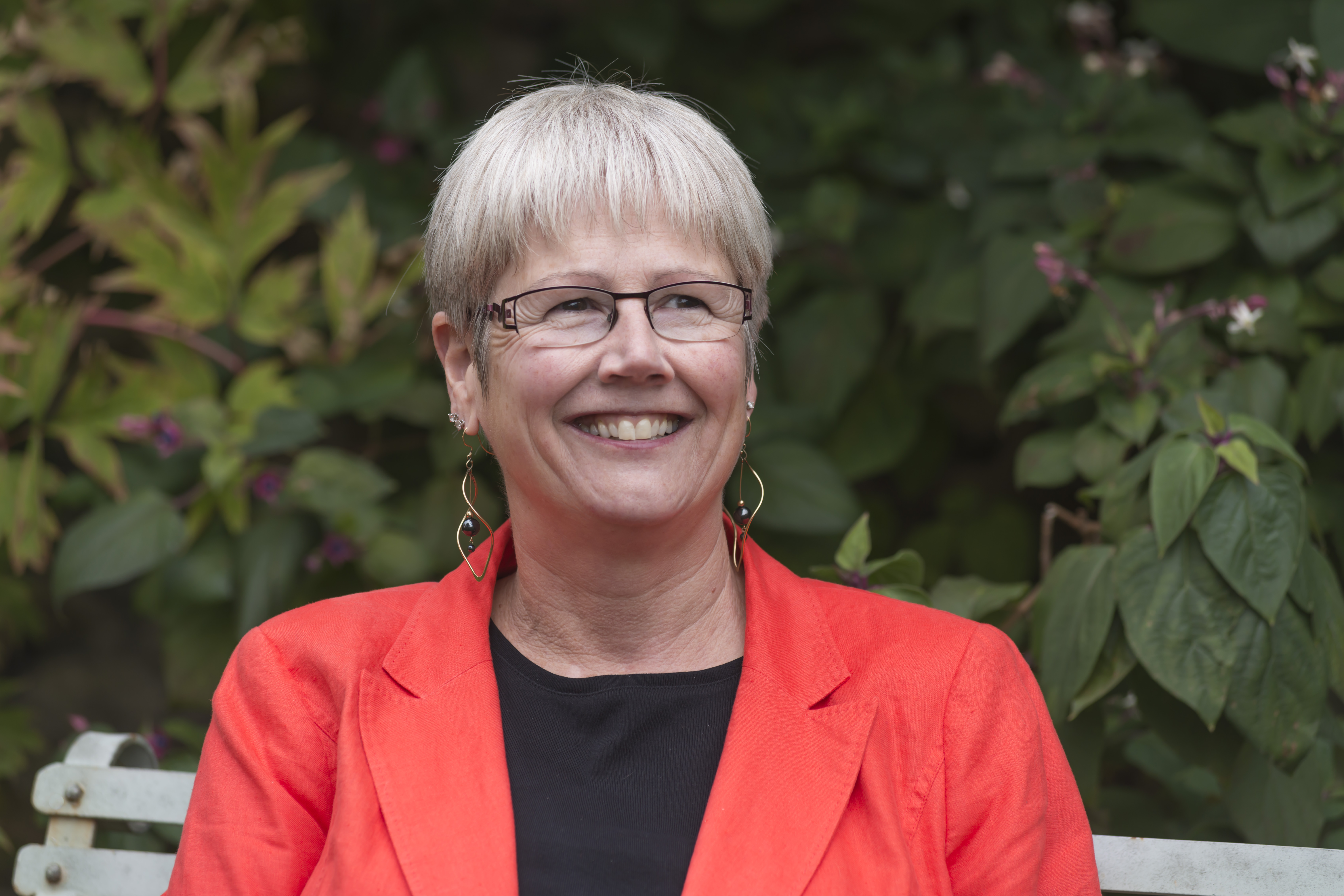
Prof Jane Langdale named ‘Oxford Changemaker’ in Ashmolean Exhibition

Current student breaks three University powerlifting records
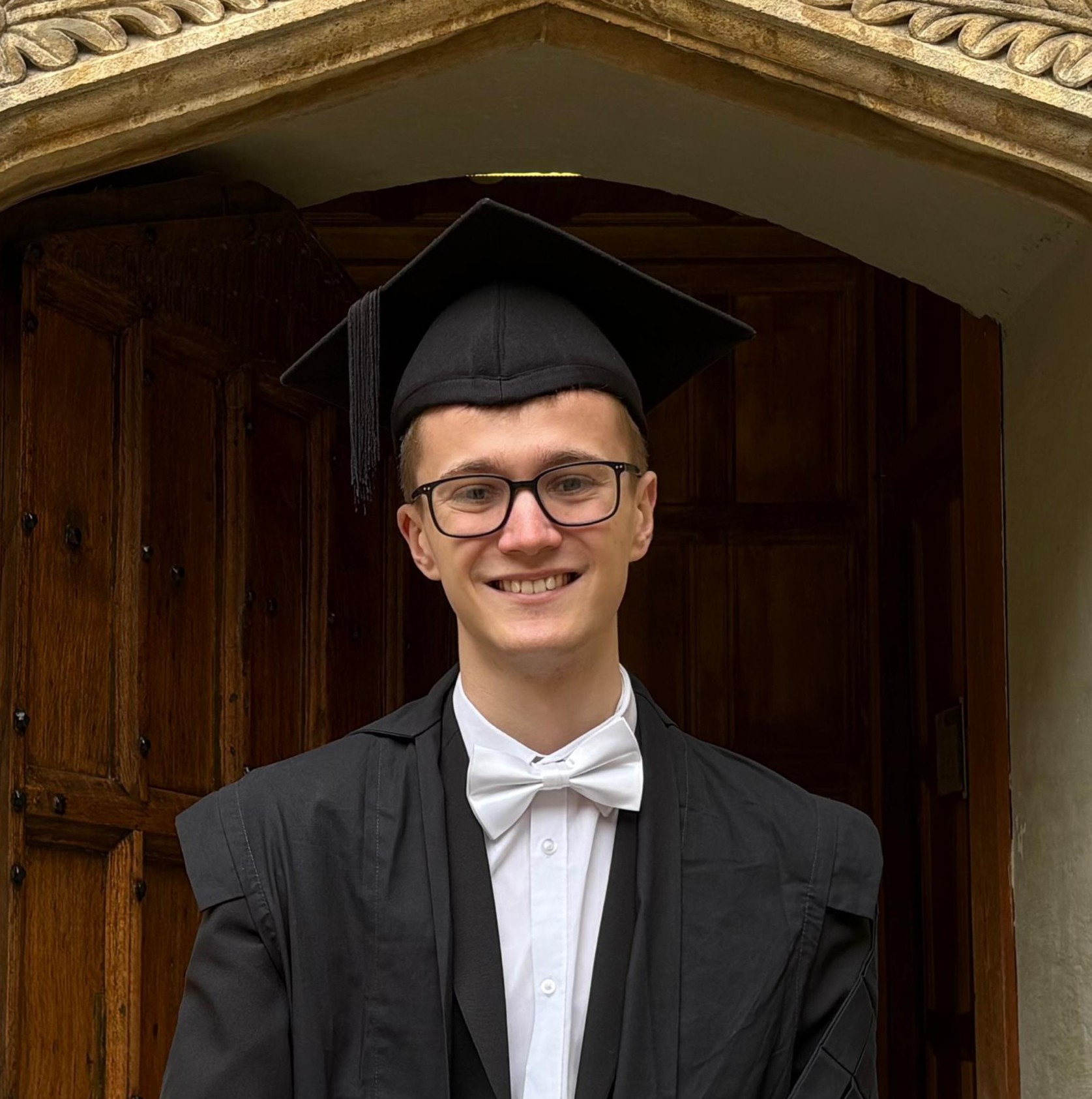
A sense of accomplishment
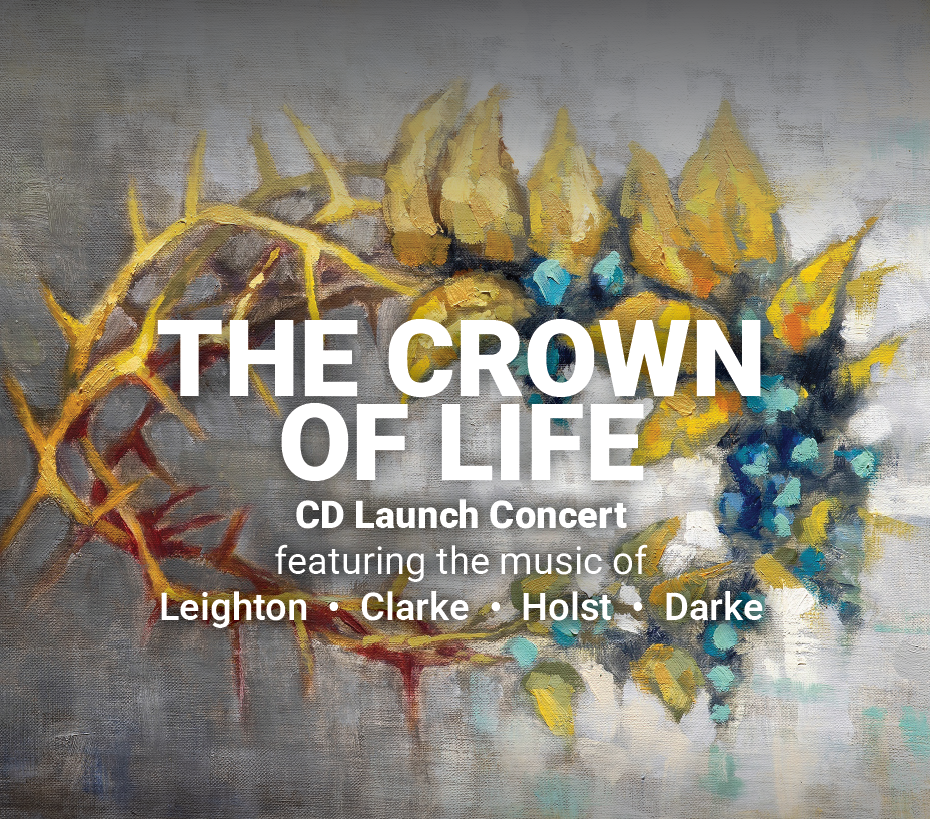
7
MAR
The Crown of Life: choir CD Launch Concert
What’s for lunch?
- Soup, salads, sandwiches, pasta and sauces,
jacket potatoes and fillings
**
Goan Monkfish Curry
Lemon & Curry Leaf Rice, Coconut Flatbread,
Pickled Red Onion
**
Warm Banana & Jaggery Crumble
Cinnamon, Ginger, Coconut Cream
———————-
Goan Tofu Curry,
Lemon & Curry Leaf Rice, Coconut Flatbread,
Pickled Red Onion
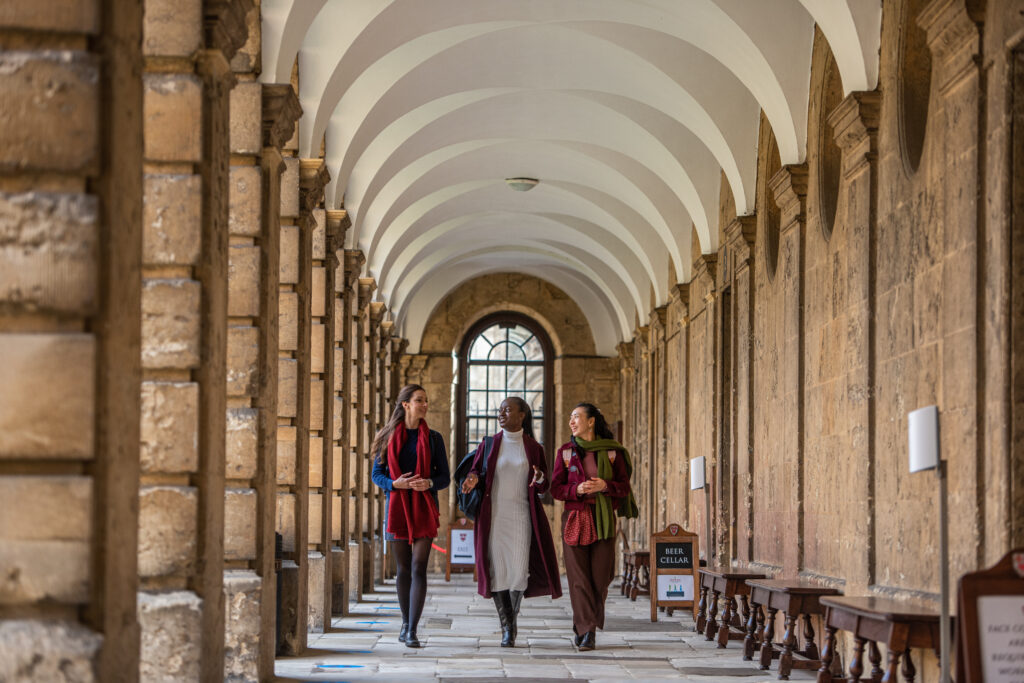


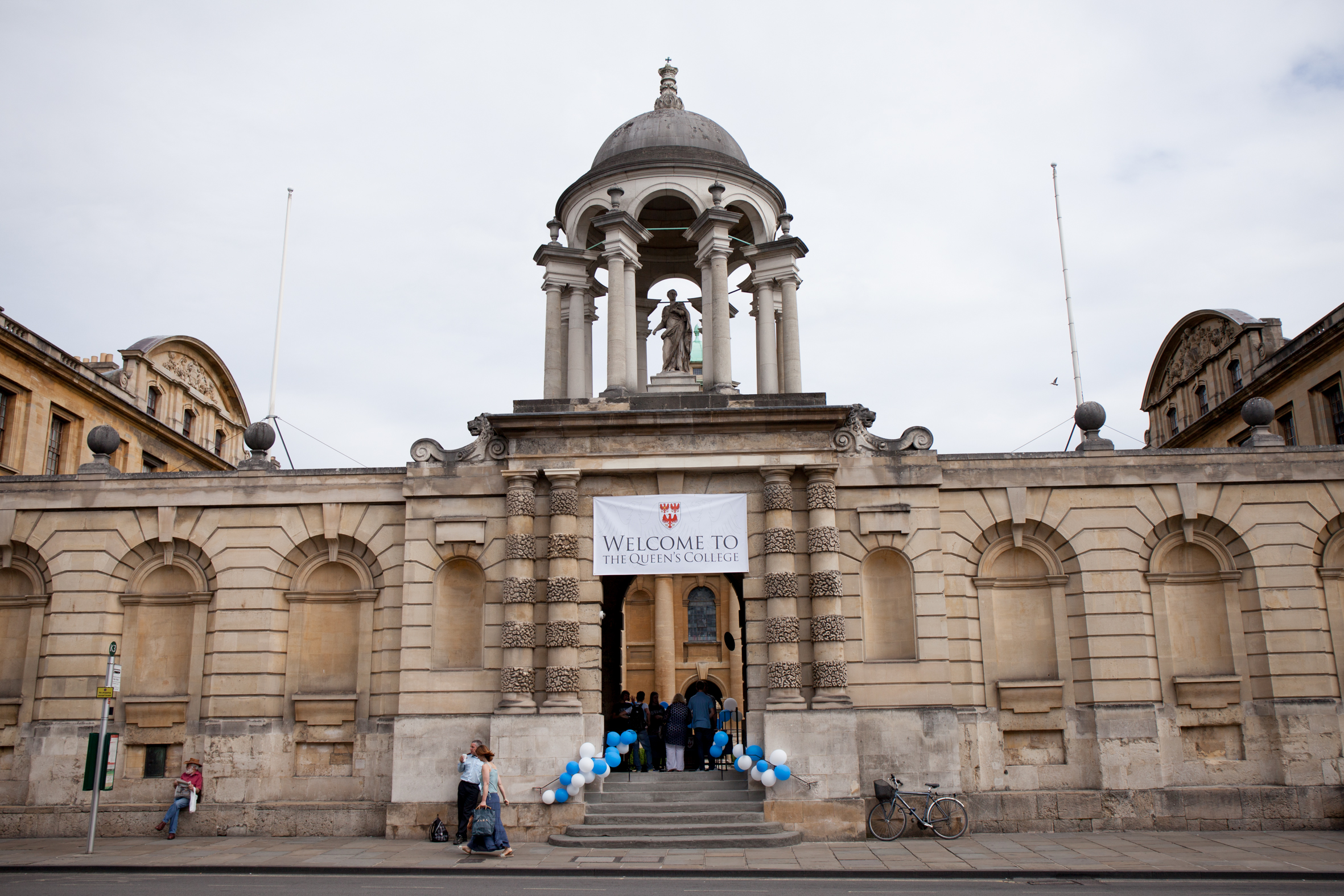

As the first recipient of the Old Member-funded Accomplishment Scholarship funded by The Accomplishment Trust, Isaac is already demonstrating the impact of postgraduate support at Queen’s.
Reading for a Master’s in History, Isaac is researching student culture in late Victorian Oxford, using student magazines to uncover how earlier generations shaped their place within the University.
“Without this support I would not have been able to accept my offer… Having the costs of my course met has enabled me to commit myself completely to my studies.”
From archival research to conversations within a close-knit graduate community, Isaac reflects on the freedom the scholarship has made possible, and on why independent research matters.
Read his story: ow.ly/GGuX50YnXrA
#PostgraduateStudy #OxfordHistory #PhilanthropyInAction #PostgraduateSupport #MastersResearch #StudentCulture #IndependentResearch #GraduateCommunity #AcademicScholarship #HistoryResearch ... See MoreSee Less
“Wonderfully terrifying.”
That’s how second-year Music student Tom Constantinou describes conducting Sondheim’s ‘Company’ at the Oxford Playhouse this January.
From leading a 14-piece jazz band in the pit to navigating the acoustics of a professional theatre, all while balancing an Oxford degree, Tom shares his experience and tells us how singing in the Choir of The Queen's College, Oxford helped prepare him.
Read Tom’s story. 🎼✨ ow.ly/n07o50Yej28
#MusicStudent #OxfordMusic #Sondheim #CompanyMusical #JazzBand #OxfordPlayhouse #StudentLife #QueensChoir ... See MoreSee Less
Senior Research Fellow Dr Frances Reynolds and former Queen's Research Fellow Dr Selena Wisnom (now Lecturer in the Heritage of the Middle East at the University of Leicester) appeared on BBC Radio 4’s ‘In Our Time’ this morning discussing the Code of Hammurabi which made such an impression in Mesopotamia that it was copied and shared for a millennium after his death: www.bbc.co.uk/sounds/play/m002r4v1.
#CodeOfHammurabi #MesopotamiaHistory #AncientLaw #HistoricalResearch #BBCInOurTime #AncientCivilizations ... See MoreSee Less
Could neutrinos change the future of dark matter research? ⚛️
In the latest episode of 'Even Bananas', Fellow in Physics Dr Kirsty Duffy is joined by dark matter hunter Dr Kimberly Palladino to tackle one of the biggest mysteries in modern physics.
Dark matter remains elusive but as experiments become more sensitive, neutrinos may start to interfere, creating a “neutrino fog” that could reshape how scientists search for answers.
'Even Bananas' breaks down cutting-edge physics with clarity and a sense of fun.
🎥 Watch the new episode on YouTube: ow.ly/pXaZ50Y9eSI
#Neutrinos #DarkMatter #PhysicsPodcast #EvenBananas #ScienceCommunication #PhysicsResearch #ModernPhysics #PhysicsForEveryone #PhysicsatOxford ... See MoreSee Less